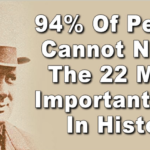With the constant windstorm of life raging on the outside, it takes great skill to remain as a calm and stable mountain internally. But with some practice, you can learn to maintain your inner stability and peace despite what may be happening in your life. Even when things are not as chaotic in life, there is still a constant chatter that tends to go on in the mind. Many people refer to this as the “monkey mind”, jumping from tree to tree and living in inner chaos. With the culmination of outer chaos and inner chaos, it can be hard to find tranquility during these times. At the end of the day, we have no control over what happens on the outside; we cannot stop pandemics from coming, wars from raging, or fights from evolving. But what we can control is the self. With practice, you can learn to take control of your mind and therefore take control of your life as well!
The Second Arrow of Suffering
In Buddhism, there is a famous story that is believed to have been told by the Buddha in which he describes a man who was struck by an arrow. The Buddha asks his students if they think this first arrow was painful for that person, and they say of course. Then the Buddha says that the person is struck by a second arrow and asks his students if that was even more painful than the first arrow, and they say of course. The Buddha then goes on to explain that this second arrow is actually our internal reaction to the first arrow.
Getting struck by the first arrow is certainly painful as well and this cannot always be avoided. But we can choose if we allow that second arrow to come our way and further our suffering even more. When you spiral into negative thinking, self-blame, doubt, shame, guilt, and many other internal struggles from an event, this is the second arrow. So, choose not to give yourself this second arrow and give yourself some inner peace instead.
How to Recognize the Second Arrow
The first step to preventing this second arrow from arising in the first place is to develop your ability for self-awareness. When you are able to develop a detached observer point of view on your mind, you can observe your thoughts as they are, just thoughts, without getting attached to them. We often don’t have control of what thoughts come into our minds, it is generally a combination of our habits, culture, conditioning, environment, and more. But we can choose if we let those thoughts affect us internally and change our emotional state. You are not your thoughts, and your thoughts are not you. You are something so much greater than these thoughts, something much deeper and more beautiful.
When you notice yourself getting attached to these negative thoughts and getting emotional about them, this is exactly the moment when you can practice pausing and observing. When you take this momentary pause, it allows you to step outside of the experience and observe things unfolding. Through this observational process, you can tone down your emotional reactivity and move into inner peace instead. There are many ways that you can develop your ability to do this, and it mostly just takes practice in these moments. But mindfulness meditation can also help you to deepen your ability to become objective and self-aware in more stressful or chaotic times of your life.
The Importance of Compassion and Loving-Kindness
Through this entire process of self-awareness during stress and negativity, the most important aspect to keep in mind is to develop inner compassion and loving-kindness. When you come from a place of love, you can be gentler with yourself and with others as well. Rather than getting angry with yourself when you notice that you are in a negativity spiral, try thanking your awareness for bringing this to your conscious mind and give yourself love and compassion in these moments instead. We are all human, and nobody is perfect. So, give yourself some room for imperfection, allow yourself to grow and develop. With this compassion, great growth and change can begin to emerge.
Related: 5 Ways to Tame Your Mind in Stressful Times
Shifting Your Perspective
What is explained above is what you can do in moments when you are caught in negativity. But there are also some things that you can do before this entire process happens to promote inner peace as well. The best thing that you can do throughout your life is to try to focus on love, positivity, gratitude, and compassion instead. Whatever you choose to focus on in your mind, this actually creates an internal feedback loop that further emphasizes it, and it promotes those thoughts in the future as well. So, by making an active choice to focus on positive thoughts instead, this will promote greater positivity from arising in the future as well.
But throughout this process, it is important to also not get caught in toxic positivity. Trying to be happy all the time and smile through the pain is completely unrealistic. Within each of us, we contain both shadow and light, and it is important to acknowledge and allow them both without judgment. Although focusing on the positive can certainly be helpful, allow yourself to feel pain and sadness sometimes too. Give yourself permission to grieve, to fear, and to feel the full spectrum of emotions. But through this process, try to practice acceptance and non-judgmental awareness of yourself, trying to prevent yourself from getting attached to any single experience or emotion.
Related: Why Practicing Gratitude Can Keep Your Brain Healthy
Summary
In moments of stress and chaos, the best thing that you can do is to pause, take a few deep breaths, observe what is happening within you, and then proceed with mindful constructive action. When you can learn to pause before reacting, you can give yourself room to detach from the experience and process things without the emotional reactivity component.
We all need a little inner peace in our lives, so make sure to share this article with your friends and family as well to bring them with you on your journey through mindfulness!




